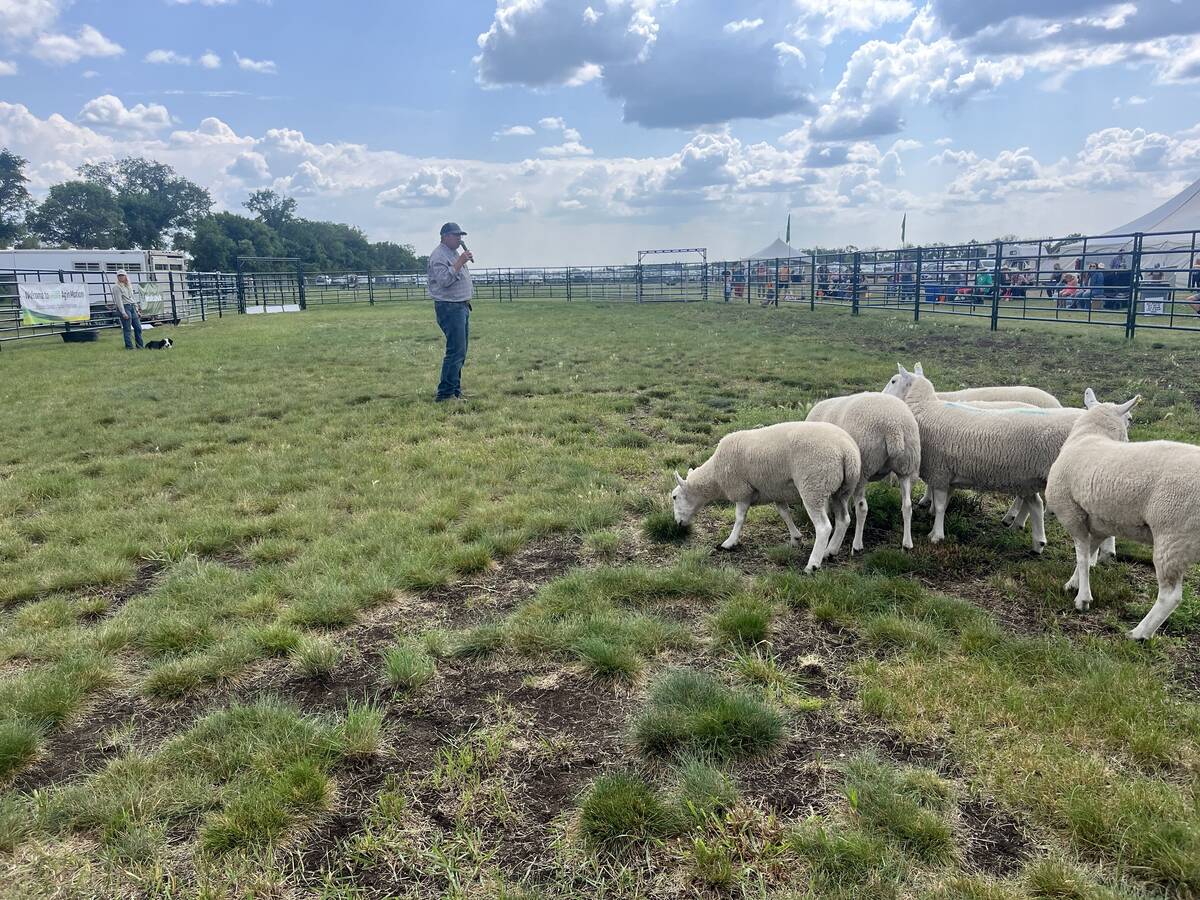HAMILTON, Ont. — Delegates to the Associated Country Women of the World voted in favour of softer resolutions requiring more study of genetically modified food.
A resolution calling for a five-year moratorium on commercial growth and trade in GM food was withdrawn by sponsoring groups from the United Kingdom.
Shannon Storey, an ACWW delegate and president of Canada’s National Farmers Union women, said resistance from the American delegates led to the withdrawal of the moratorium suggestion. The U.S. delegation also blocked from the voting floor an alternative motion from the NFU members that governments not approve of GM organisms.
Read Also

Stock dogs show off herding skills at Ag in Motion
Stock dogs draw a crowd at Ag in Motion. Border collies and other herding breeds are well known for the work they do on the farm.
That disappointed a lot of groups, particularly those from India, said Storey. Farmers from India have been leading a fight against GM crop varieties, which they see as a corporate campaign preventing farmers from saving seeds from one season to plant in the next.
“My biggest surprise” at ACWW, said Storey, “was that NFU thinking is very often similar to people in developing countries.”
Another controversial resolution sponsored by Norway and England was defeated. It asked the United Nations and governments to acknowledge the value of unpaid work by awarding certificates of qualification and competence. Storey and Elizabeth Rushton, Canadian vice-president on the ACWW board, agreed this motion lost because of a misunderstanding about the definition of unpaid work as volunteer work. It was a perception issue, said Rushton, with industrialized countries not understanding the importance of getting written credit for women’s work in the developing world.
Another uproar was avoided when a South African group withdrew its motion asking for a ban on female genital mutilation. At the last ACWW convention in 1998, Canada had put this forward as a recommendation, not as binding on the country delegations as a resolution. However, concerns about cultural domination led to the motion’s removal this year.
An emergency resolution was passed calling for individuals and governments to promote education about the dangers of AIDS. This followed up on a call to activism on the disease made earlier in the week by ACWW president Hilda Stewart.
Other resolutions asked the UN and governments to eliminate the trafficking of women and children for prostitution or forced labour, urged the same bodies to implement the UN childrens’ rights charter, warned about the dangers of the internet and asked for support of home economics education.
Also approved was a recommendation from Canada that there be more research into the prevention and treatment of malaria.
Storey said the value of ACWW conventions is the training in leadership and conference tactics that delegates get. She said it is “energizing.”
Manitoba Women’s Institutes president Vivian Campbell said she was impressed meeting women from 41 countries at the convention.
“It was like a trip around the world in one week.”
Campbell said the delegates also shared similar problems in the areas of health and education.
Saskatchewan Women’s Institutes president Doreen Holden also appreciated hearing the problems of people in other countries.
“They’re not getting together for tea or to have fun,” she said of the foreign members. They are busy setting up orphanages and dealing with wife beating and gambling. Such stories make Canadian WI members more willing to fund overseas projects, Holden said.
















